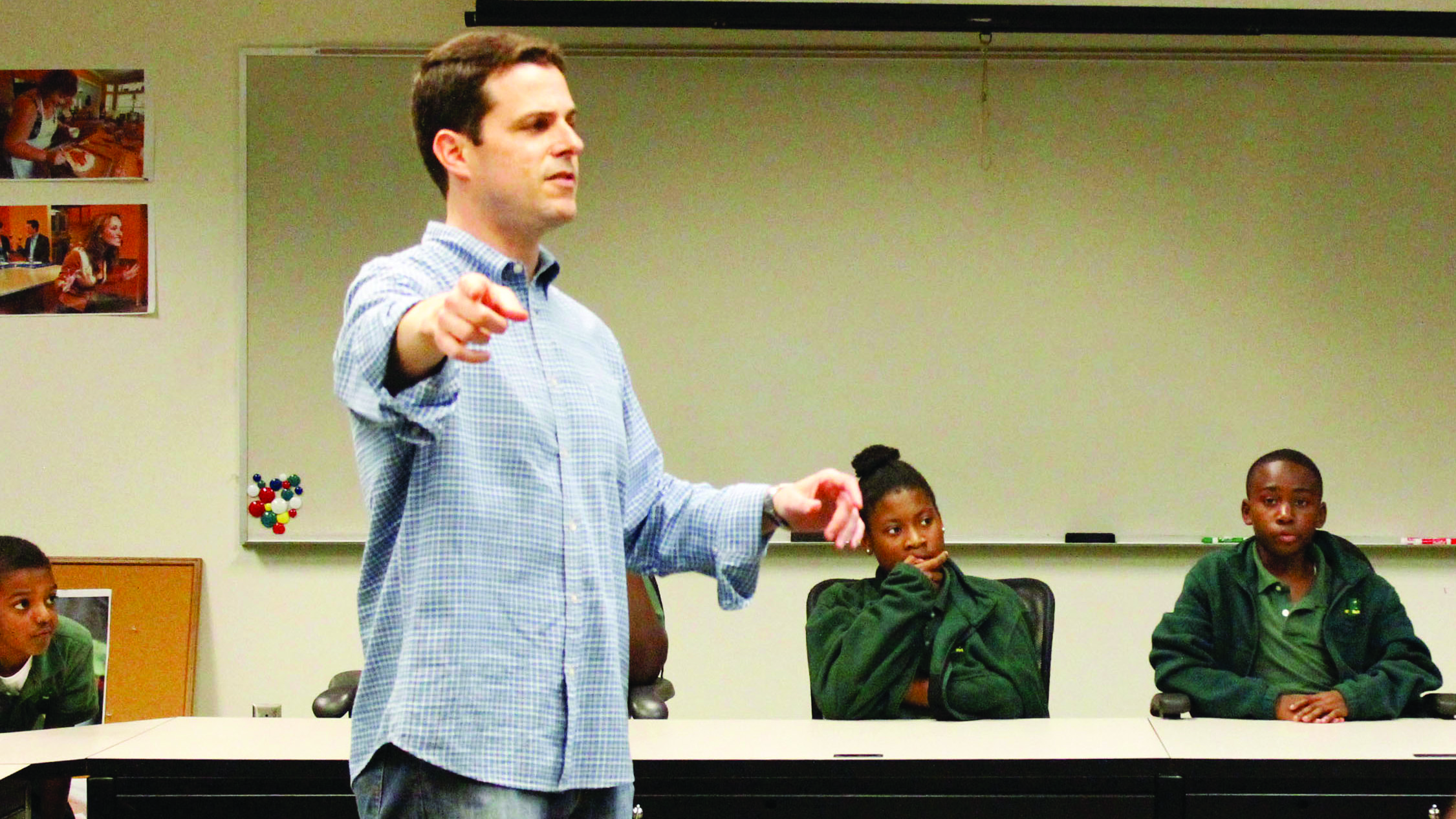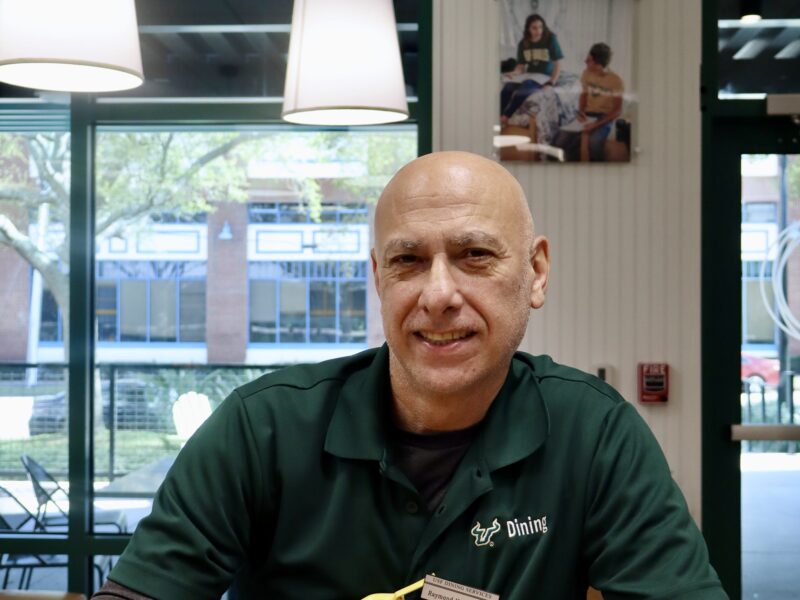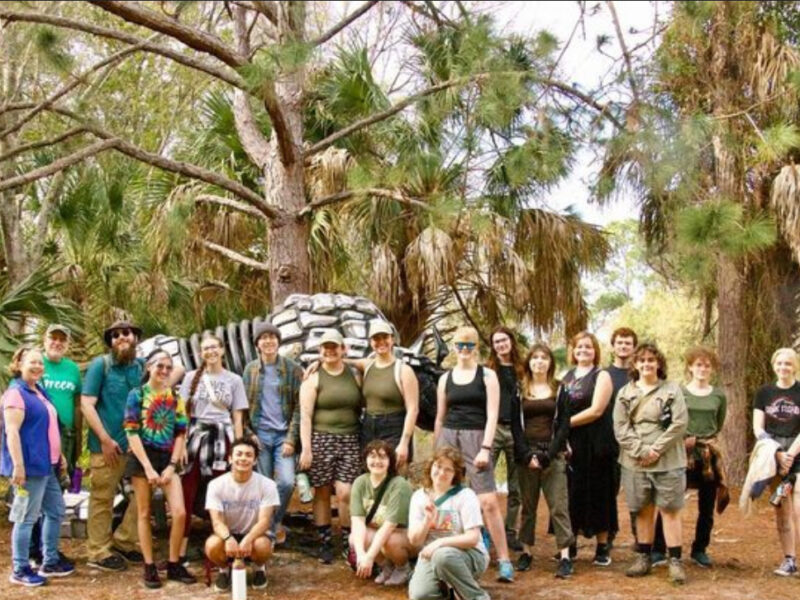Above photo: USF St. Petersburg journalism professor Bernardo Motta’s path to citizenship has taken 12 years, over $35,000 and more than its fair share of obstacles. Courtesy of Neighborhood News Bureau
By Juliet Di Preta
Bernardo Motta, a journalism professor at USF St. Petersburg, has spent the past 12 years seeking his U.S. Citizenship. Dr. Motta’s long journey to citizenship
Motta came to the U.S. from his home country of Brazil in 2005 with a student visa looking to earn his doctorate from the University of Tennessee.
“I always thought of the United States as kind of the center of the world in a way. Meaning, everything that is happening in the world is happening here, and I thought that was a good place to be,” Motta said.
However, the U.S. was not the only country on his radar when looking for schools. Also on his list of potential university homes were Canada and Australia. He was accepted to a university in Australia and was getting ready to head that way when he received another acceptance letter in the mail.
“We were basically already packing our bags when I got the letter from the University of Tennessee saying not only that I have been accepted, but that I got a scholarship,” Motta said.
The school was one of his first choices.
His wife attended high school in Tennessee, and with the scholarship on top of that, the decision became clear.
“I can pay $20,000 just to get to Australia or get paid to go to America. I don’t think there’s much choice there,” Motta said.
Education wasn’t the only force driving Motta toward the U.S. Another major consideration was financial stability.
According to studies by Human Rights Watch and Amnesty International, Brazil has one of the highest rates of police violence in the world. Journalists, environmental activists and social justice activists of all types are regularly assassinated, Motta said.
“In Brazil, if you are a journalist and if you are working as a lawyer or working for the environment you don’t get paid, and you get shot a lot,” Motta said. “It’s not a very safe place to be, especially when you’re not making any money that actually pays the bills.”
After earning his doctorate, Motta then had to apply for an H1-B work visa in 2009. This type of work visa specifies that a person is required to work in a specialty occupation. Applicants must have unique skill set that set them apart and make them invaluable to an employer.
Motta’s doctorate research on the Emergency Planning Community Right-To-Know Act (EPCRA) made his research unique and allowed him to get his H1-B work visa.
“Not many people studied that,” Motta said.
After two years of having his work visa, he was able to apply for a green card. The interview for the green card can only be described as “very extensive, according to Motta.
“I had to remember places that I lived when I was three years old,” Motta said.
Motta emphasized how complicated immigration law and the process of seeking citizenship can be. He said that even with his law degrees, neither him or his lawyer could understand the complicated process.
“Many lawyers in the U.S., they say that they’re an expert in immigration because they get a lot of money out of it, but most of them are not,” he said.
Because of this, Motta fired his lawyer and began doing the work himself. As a professor, he had a lot more free time than most to fill out the forms and go through the process, which can be extremely time consuming.
“I basically spent spring breaks and whatever summer breaks I had just doing that kind of stuff,” he said.
Not only is the process lengthy and labor-intensive, it can also be financially stressful. Motta said he stopped counting the cost at around $35,000, and that amount only includes expenses accrued since arriving to America, such as applying for visas and forms.
There is also travel that is required.
Many of the applications require that the applicant spend time outside of the U.S. Motta had to leave to go through the embassy process. All of the travel going back and forth can be both financially and physically exhausting.
The travel between countries can also be scary, he said. He stated that it depends on the mood of the person who looks at your passport. If that person is in a bad mood, they can decide that you can’t come in.
When traveling by himself, Motta rarely has any issues with the process. However, it’s not always easy traveling. Motta has been randomly selected for security checks a few times. This usually happens, he notes, when the TSA agents hear him speaking Portuguese with his wife.
“One of the best experiences I had was the first time I was coming back here with my green card and someone said, ‘Welcome back home.’”
It was the first time he had heard someone refer to the U.S. as his home and describes it as “sheer luck” that it happened to be the first time he was traveling with his green card.
“You kind of get traumatized by the whole process that every time you look at one of those people with a pen who can just say ‘Ok, you’re not going to get in,’ … thinking that I can lose everything that I have just worked for in the last 12 years. It’s a little bit scary,” Motta said.
There is a light at the end of this stressful, 12-year tunnel, though.
On March 26, Motta received a letter from the Department of Homeland Security stating that they received his final form requesting naturalization.
It should only be a matter of time before they accept his petition, which would allow him to take his English and U.S. civics test, attend the naturalization oath ceremony and officially become a U.S. citizen.




“Applicants must have unique skill set that set them apart and make them invaluable to an employer.”
That is not true. All that is required is a BS degree. Just read the article. A degree in journalism is in no way unique even at the PHD level. Dr. Motta brings nothing to this country that we do not already have plenty of. Each year we graduate more journalists than we have jobs for. This is just another case of foreigners manipulating our immigration laws against us.